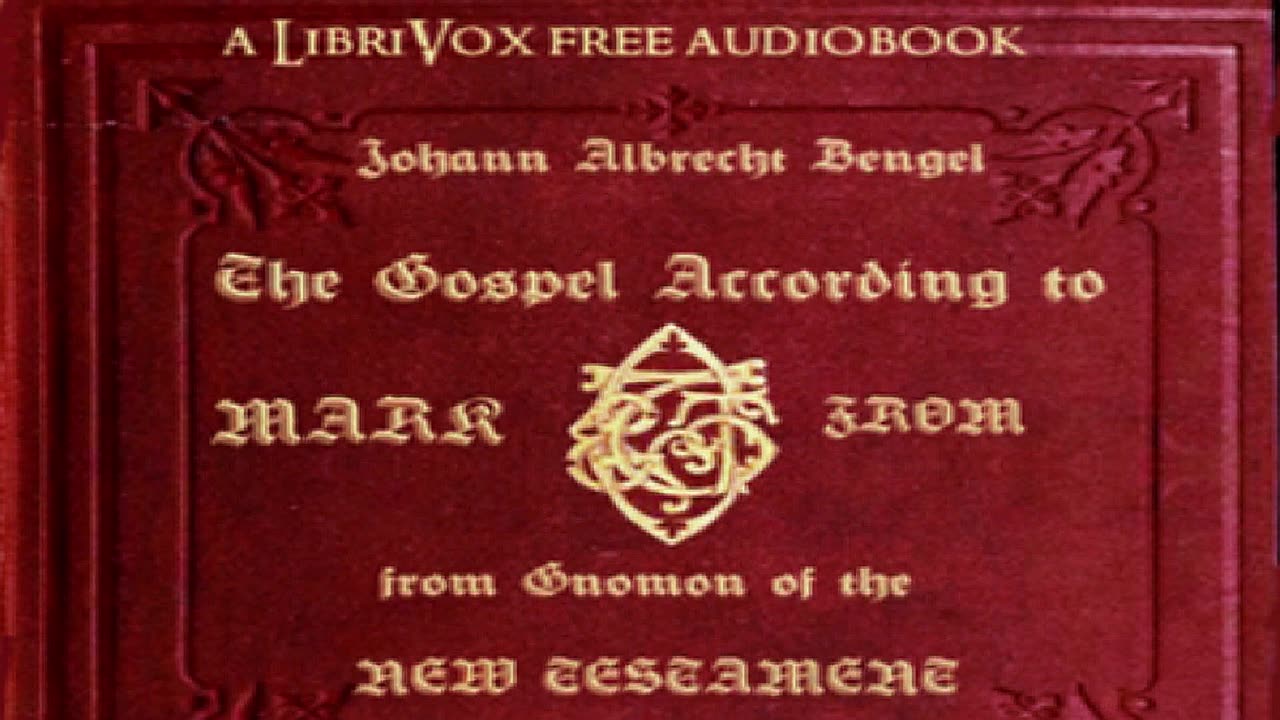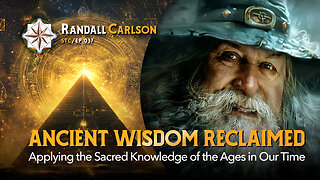Premium Only Content

The Gospel According to Mark, from Gnomon of the New Testament Johann Albrecht Bengel (1687 - 1752)
Mark Chapter 1 00:00:00
Mark Chapter 2 00:25:51
Mark Chapter 3 00:31:52
Mark Chapter 4 00:45:12
Mark Chapter 5 00:58:31
Mark Chapter 6 01:08:59
Mark Chapter 7 01:21:47
Mark Chapter 8 01:36:35
Mark Chapter 9 01:45:29
Mark Chapter 10 02:10:24
Mark Chapter 11 02:28:11
Mark Chapter 12 02:37:06
Mark Chapter 13 02:48:08
Mark Chapter 14 02:58:05
Mark Chapter 15 03:10:55
Mark Chapter 16 03:20:21
The Gospel According to Mark, from Gnomon of the New Testament
Johann Albrecht Bengel (1687 - 1752)
Translated by Andrew Robert Fausset (1821 - 1910)
The Gnomon of the New Testament, by John Albert Bengel is the scholar's delight. He selected the title as modest and appropriate, intending it in the sense of a pointer or indicator, like the sundial; his aim being to point out or indicate the full force and meaning of the words and sentences of the New Testament. He endeavours to let the text itself cast its shadow on his page, believing with Luther that "the science of theology is nothing else but grammar exercised on the words of the Holy Spirit".
His principles of interpretation stated in his "Essay on the Right Way of Handling Divine Subjects", are such as will make the lover of God's word feel safe in his hands: 'Put nothing into the Scriptures, but draw everything from them, and suffer nothing to remain hidden, that is really in them." "Though each inspired writer has his own manner and style, one and the same Spirit breathes through all, one grand idea pervades all." "Every divine communication carries (like the diamond) its own light with it, thus showing whence it comes; no touchstone is required to discriminate it." "The true commentator will fasten his primary attention on the letter (literal meaning), but never forget that the Spirit must equally accompany him; at the same time we must never devise a more spiritual meaning for Scripture passages than the Holy Spirit intended." "The historical matters of Scripture, both narrative and prophecy, constitute as it were the bones of its system, whereas the spiritual matters are as its muscles, blood vessels, and nerves.
As the bones are necessary to the human system, so Scripture must have its historical matters. The expositor who nullifies the historical ground work of Scripture for the sake of finding only spiritual truths everywhere, brings death on all correct interpretations. Those expositions are the safest which keep closest to the text." - Summary by Charles Spurgeon
-
 19:13
19:13
Christian Sermons and Audio Books
16 days agoOf The Covenant Of Grace (from A Body of Practical Divinity) - Puritan Thomas Watson
174 -
 LIVE
LIVE
Wendy Bell Radio
4 hours agoDaddy's Home
2,785 watching -
 LIVE
LIVE
Graham Allen
1 hour agoCanada FOLDED!! Trump Wins Trade War With The 51st State! + The Department Of Education Is DONE!
1,549 watching -
 7:53
7:53
Misha Petrov
14 hours agoThe CRINGIEST Moments From The Grammys
7.62K59 -
 5:57
5:57
China Uncensored
18 hours agoLiving in China Comes With Some Risks
23.5K24 -
 12:32
12:32
Bearing
1 day agoAustralian Gender Clinic Caught SECRETLY Transitioning Kids 🤬🤬
13.5K54 -
 4:34
4:34
AlaskanBallistics
1 day ago $0.07 earnedFosTech Echo Trigger
7.52K10 -
 9:10
9:10
ariellescarcella
12 hours agoI Asked People To Toss Out An Identity : The Queer Alphabet Is OVER
5.48K5 -
 27:00
27:00
Squaring The Circle, A Randall Carlson Podcast
19 hours agoSPECIAL EPISODE: #037 Randall Carlson Explains The Vital Role of Sacred Geometry in the Modern Age
6.26K2 -
 58:35
58:35
Trumpet Daily
21 hours ago $3.93 earnedThe Trade War Begins - Trumpet Daily | Feb. 3, 2025
20.6K34